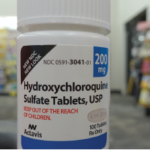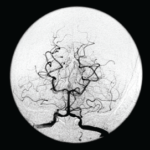An expert discussed the screening and treatment of sarcoidosis and drug-induced sarcoidosis-like reactions during the 2021 ACR State-of-the-Art Clinical Symposium.


Jason Liebowitz, MD, FACR, an assistant professor of medicine at Columbia University Vagelos College of Physicians and Surgeons. He completed undergraduate studies at Johns Hopkins University, Baltimore, where he was inducted into Phi Beta Kappa. He attended medical school at Johns Hopkins School of Medicine and completed his Internal Medicine residency at Johns Hopkins Bayview Medical Center, where he served as chief resident. He completed his rheumatology fellowship at Johns Hopkins Hospital and was honored with the 2019 Distinguished Fellow Award from the American College of Rheumatology. His research and writings have been published in The New England Journal of Medicine, JAMA, JAMA Internal Medicine, Arthritis Care and Research and The Journal of Graduate Medical Education, among other journals. He participated in fellowships with the American Federation for Aging Research (Medical Student Training in Aging Research), the American Austrian Foundation (Max Kade Clinical Clerkship in Vienna, Austria), and the fellowships at Auschwitz for the Study of Professional Ethics (through Yale School of Medicine). He is a co-editor of the textbook Clinical Innovation in Rheumatology: Past, Present, and Future, a co-editor of the book Masterclass in Medicine: Lessons from the Experts, and a co-editor of the textbook series Interdisciplinary Rheumatology.

An expert discussed the screening and treatment of sarcoidosis and drug-induced sarcoidosis-like reactions during the 2021 ACR State-of-the-Art Clinical Symposium.

Advancements in the treatment of myositis are on their way, according to Hector Chenoy, PhD, FRCP, who outlined the latest clinical trials during the 2021 ACR State-of-the-Art Clinical Symposium.

Patients with autoimmune diseases, such as spondyloarthritis, are at risk of developing inflammatory bowel disease. Here are considerations for its management and treatment.

In 1888, Dr. Jan Mikulicz-Radecki reported a case of chronic, bilateral, painless enlargement of the salivary and lacrimal glands that appeared to be idiopathic.1 In subsequent years, other patients with these findings were reported, and the term Mikulicz syndrome was used to describe these cases. Although Mikulicz syndrome is now known to be associated with…

At the 2021 ACR State-of-the-Art Clinical Symposium, Saira Sheikh, MD, associate professor of Medicine and director of the Rheumatology Lupus Clinic, University of North Carolina, Chapel Hill, provided an update on the past, present and future of the management of systemic lupus erythematosus (SLE). This year, hydroxychloroquine received a great deal of attention, given early…

Many a rheumatology consult has centered on a perplexing question: Does this patient have central nervous system (CNS) vasculitis? At the 2021 ACR State-of-the-Art Clinical Symposium, Rula Hajj-Ali, MD, FACP, professor of medicine and associate director of vasculitis care and research, Cleveland Clinic Lerner College of Medicine, discussed this topic in detail, providing a series…

The 2020 Basic Science Year in Review covered autoantibody origin and persistence, insights into the major histocompatibility complex and factors in rheumatoid arthritis progression and relapse.

The ACR Review Course featured eight talks providing a practical review of issues encountered by rheumatologists.

During ACR Convergence 2020, Jinoos Yazdany, MD, MPH, discussed innovative research into a potential treatment for lupus, medication tapering & more. These findings may influence the treatment of rheumatic disease in the future.

Immune checkpoint inhibitors effectively treat malignancy in ways that were not possible just a few years ago, but immune-related adverse events are a potential side effect.